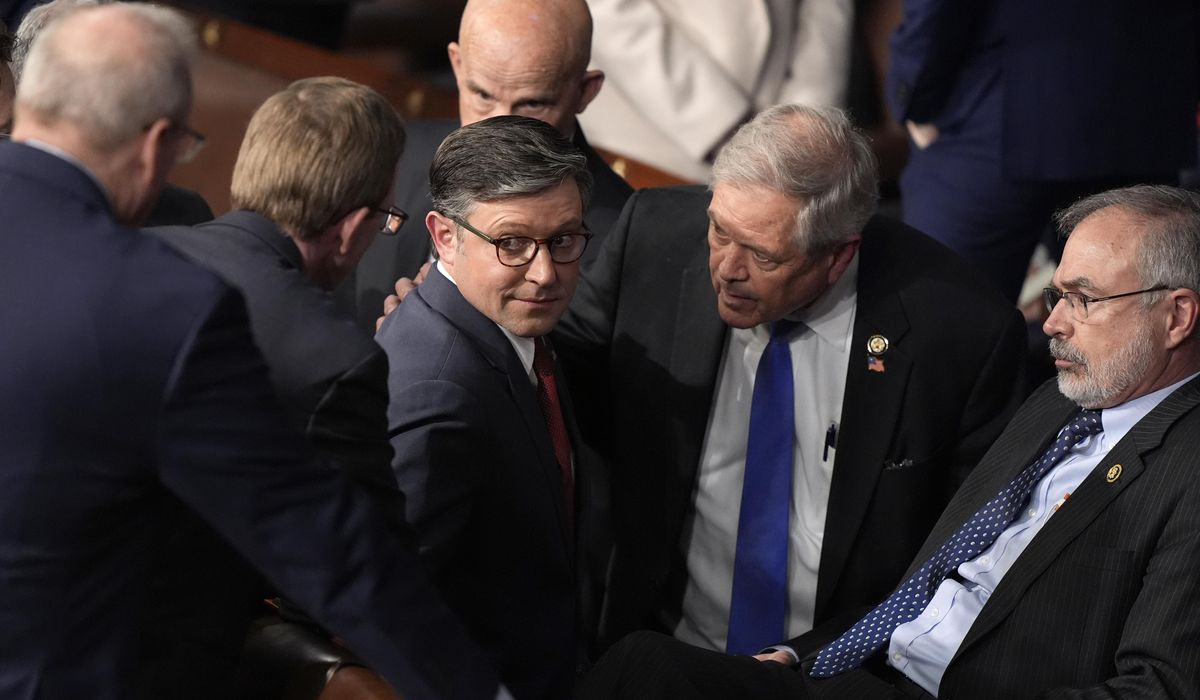


Republicans are divided on a strategy to move the Trump administration’s agenda, and some want more input from President-elect Donald Trump, while others are fine to hash it out on their own.
Before Republicans can knuckle down and fully develop what will and won’t move through the filibuster-proof budget reconciliation process, they need to know whether they have one colossal bill to work with, or if they can divide Mr. Trump’s agenda between two bills.
Congressional leaders are split on which approach to take. Mr. Trump has waded into the congressional back and forth over the last few days, but has not taken a firm position with either side.
“I like one big, beautiful bill and I always have, I always will,” Mr. Trump said on Tuesday. “If two is more certain, it does go a little bit quicker because you can do the immigration stuff early.”
Senate Majority Leader John Thune, South Dakota Republican, and some in his conference want to take the two-bill track, which could move key items in Mr. Trump’s agenda, like border security funding, much faster.
Mr. Trump will be on Capitol Hill and will meet with Republican senators on Wednesday evening. The agenda and the reconciliation process will likely be the prime topic.
Meanwhile, House Republicans are largely in favor of a single bill, which would take much longer to move than divvying up the legislative load between two measures.
“We still remain convinced over here that the one-bill strategy is the best way to go, but there’s some senators who have different ideas,” said House Speaker Mike Johnson.
Mr. Johnson, Louisiana Republican, and Mr. Thune were slated to meet on Tuesday to discuss the disparate approaches. A great present for Mr. Thune, who celebrated his 64th birthday on Tuesday, would be walking out of the discussion with a unified plan.
Using the budget reconciliation process allows the GOP to avoid a filibuster in the Senate from Democrats, which could derail their plans to advance the most critical pieces in Mr. Trump’s agenda. Marquee items like extending his 2017 tax cuts, securing the Southern border and bolstering energy production in the U.S. are expected to be a part of the legislative plan.
While the GOP is united in advancing his agenda, Mr. Trump’s lack of a clear position on the strategy has some Republicans calling for the president-elect to make a firm choice to quicken the process.
Sen. Thom Tillis said Mr. Trump “is going to have to be more forceful” about shepherding GOP leaders to a consensus on the strategy.
“None of this happens without White House leadership,” the North Carolina Republican said. “The margins are simply too thin here. President Trump gets MVP status for solving the speaker vote, and we’re going to need him to play MVP on getting these bills done.”
Asked about Mr. Trump’s waffling over one bill versus two, Mr. Tillis said that’s likely because he’s getting a lot of input from people outside Capitol Hill who haven’t been involved in legislating.
“He needs to hear from people that are going to have to take on the task. And I think he will,” Mr. Tillis said.
Members of the House Freedom Caucus, like their Senate counterparts, preferred the two-bill track because it would speed up the legislative process, particularly in moving border legislation.
Rep. Michael Cloud, a member of the hard-line caucus, told The Washington Times that ultimately it’s more important to execute on Mr. Trump’s agenda rather than “mulling over which play to call.”
“Whatever the play call needs to be, it’d be helpful for us to have clarity,” the Texas Republican said.
Many Republicans just want to get the work done, and fast, and could care less whether the plan is to go with one bill or two.
“I don’t think you have to force either solution,” said Rep. Andy Ogles, Tennessee Republican. “I think as you’re prioritizing what you want to get accomplished [and] when, it organically is going to — the process will sort itself out.”
However, to begin the reconciliation process, Republicans first have to adopt matching budget resolutions in each chamber laying out instructions to committees. While those instructions do not have to specify what policies are in or out, they do require identifying revenue or spending targets and how much should come from each committee of jurisdiction.
• Lindsey McPherson can be reached at lmcpherson@washingtontimes.com.
• Alex Miller can be reached at amiller@washingtontimes.com.
